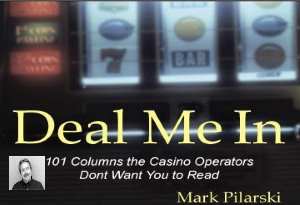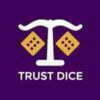On the internet, I found a person offering a foolproof roulette system. I am a bit leery as he operates from a P.O. Box. Do you really think that a system exists to beat roulette? I’ve been playing roulette for years, without success I might add, so I thought this system might help. Robert A.
Whenever I slam the system-of-the-day, Robert, it is with unyielding fervor, because I realize logic and mathematics are no match form a smooth huckster, preaching what credulous people just love to hear-making easy money! Even if the system comes from a P.O. box in Timmy-bucks-too.
The bottom line regarding roulette is that no system works. With frequent play, you are predestined to lose over an extended period, with your long-term losses averaging 5.26¢ of every dollar you bet. No system can change that fact.
If, as you say, Robert, roulette is a game you prefer to play, do it for a reason other than trying to make ungodly sums of money from the house.
You mentioned in a previous column the term, “expected value.” Could you please explain in more detail? Confused in Seattle
Because I work daily with probability, odds and statistics, I do tend to speak the lingo, using terms like “expected value.” And yes, Confused, an explanation should have come with the jargon. Terminology like expected value is well known by those of us in the casino industry, but it could be gibberish to the typical casino player.
“Expected value” is the dollar amount that should be won or lost by casino players, on average, in exact accordance with the statistical advantage of the house.
Also, experienced video poker players use the term “expected value.” When playing video poker, all experts will discard certain cards to optimize the “expected value” (win potential) of their hands. Expected value is that average value of all the wins attainable (after the discards are replaced), if the optimum cards are retained and each unique possible draw occurs.
I have noticed certain $1 video poker machines that take 100 coins. When you state “play the maximum coins” to get the benefit of the jackpot, do you mean the full 100 coins? Melody C.
The reason I advocate playing the full amount is that I have seen studies that state fewer than half of all slot players play the maximum amount of coins. Since the full potential of the machine’s return (jackpot) goes only to those who play the maximum amount of coins, it is prudent to play all the coins needed for that yield.
I have also stated that if you cannot afford to play the maximum amount of coins, you should not be playing that denomination of machine. If dollar slots are too rich for your blood, drop down to a quarter machine. It is always better value to play five quarters than to play one dollar, or five nickels instead of one quarter.
But 100 coins per play? Gosh no, unless playing $100 dollars a hand is in your gambling budget. It is surely not in mine, nor in most casino players’.
Also, Melody, you need to beware of certain slot machines when pressing the button “play MAX coins.” You could end up playing and losing 100 previously acquired credits. When you challenge the casino based on your mistake, you might get a sympathetic ear, but not the 100 credits back.
Gambling thought of the week: “The safest way to double your money is to fold it over once and put it in your pocket.” – Kin Hubbard




















